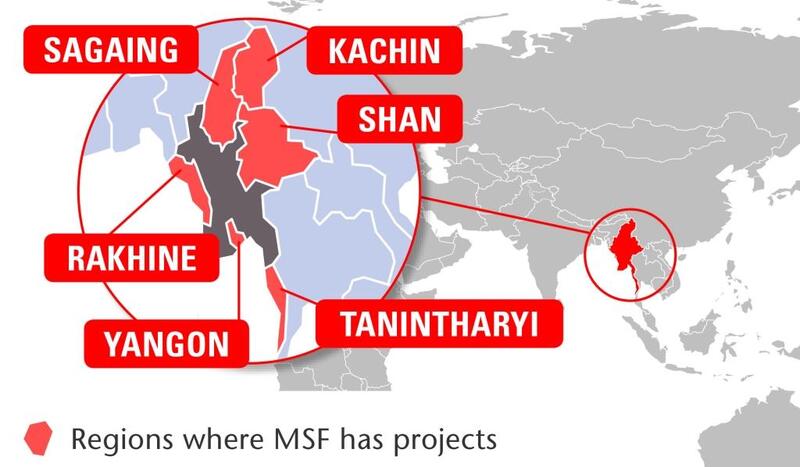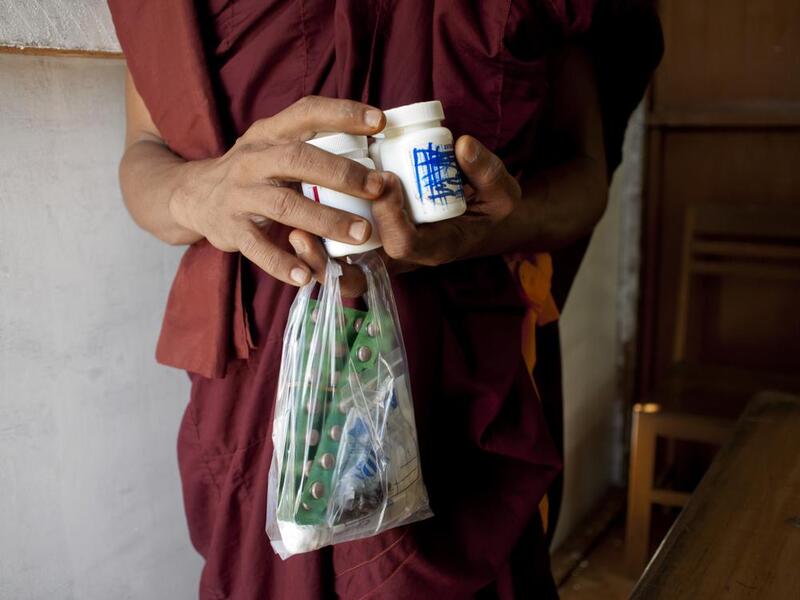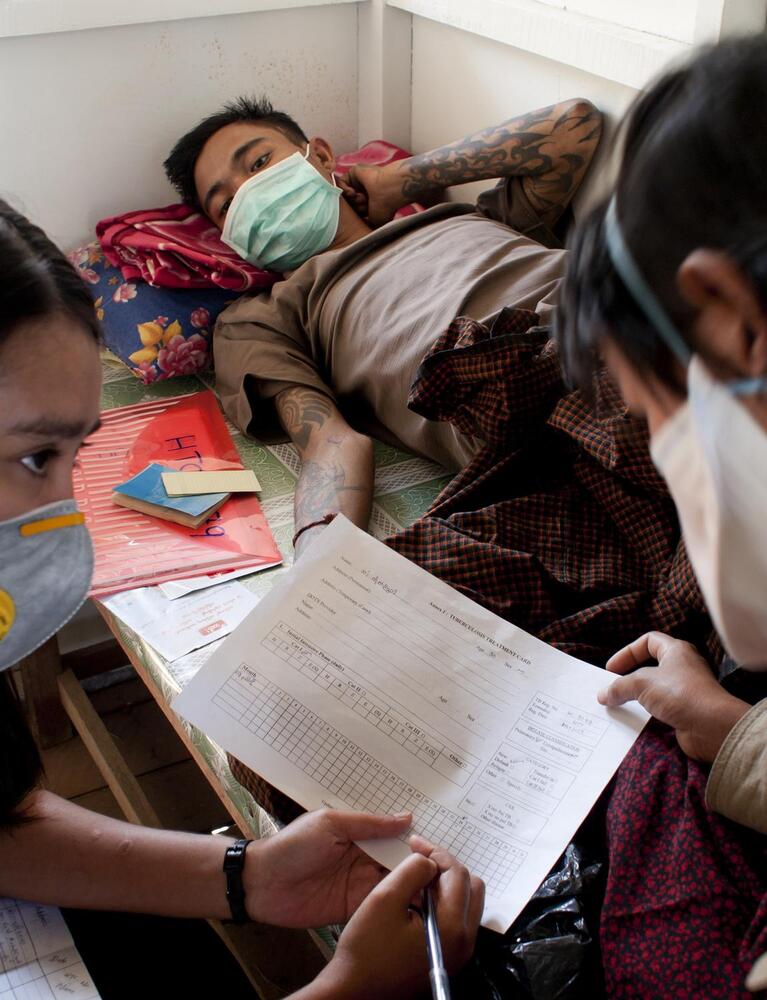Myanmar (also known as Burma) is making tentative steps towards democracy.

Sanctions have been dropped and the world is rushing to do business here.
In recent years, conveniences such as mobile phone coverage, internet access and internationally linked ATMs have all improved or made their debut.
With over 100 ethnic groups, the southeast Asian country of over 56 million people is as diverse as they come.
But, this diversity has recently been the source of considerable ethnic tension and has fuelled intermittent protests and separatist rebellions.
Myanmar also has high HIV and tuberculosis rates, and MSF is the largest provider of HIV/AIDS care in Myanmar; treating over 33,000 patients in a country where fewer than one in three people who need antiretrovirals receive them.
Médecins Sans Frontières/Doctors Without Borders (MSF) first worked in Myanmar in 1992.
MSF’s work in Myanmar: 2015
In late July, cyclone Komen caused major flooding in large parts of Myanmar. It was the worst natural disaster in the country since cyclone Nargis in 2008. Médecins Sans Frontières (MSF) responded in Rakhine state and Sagaing region, both declared disaster zones by the president.
In Kalay and Tamu townships in Sagaing, and Minbya and Maungdaw townships in Rakhine, MSF teams distributed water and hygiene kits to reduce the risk of sanitation-related illnesses, and bed nets to prevent mosquito-borne diseases such as malaria and dengue fever, which are endemic in these areas.
Providing healthcare in Rakhine state
MSF continued consolidating the activities that had been stopped by the authorities for nine months during 2014.
These included supporting the Ministry of Health’s mobile clinics visiting camps for internally displaced people in Pauktaw and Sittwe, and in ethnic Rakhine villages, as well as medical activities in Maungdaw, in the north of the state.
In total, the teams conducted 84,689 outpatient consultations, supported vaccination campaigns for measles and polio and provided over 900 referrals to secondary health facilities.
Access to healthcare remained unacceptably limited for many people in northern Rakhine, due to the severe restrictions on movement imposed on the Rohingyas, and the stark absence of other national and international humanitarian organisations.

New project in Wa Special Region 2
In Lin Haw, we have opened a new clinic inside a local health facility. Since September, teams have been running weekly mobile clinics providing basic healthcare at the market in Pang Yang.
Teams also conducted general health and hygiene education and information sessions in two nearby schools.
Caring for people living with HIV
In 2015, MSF provided care for more than 35,000 people living with HIV in its projects in Yangon and Tanintharyi regions, as well as in Shan and Kachin states – our most substantial activity in Myanmar. The government has made great progress in the provision of HIV treatment but unfortunately only half of the estimated 210,000 people who need it receive antiretroviral (ARV) therapy.
Mental health projects in Myanmar and Indonesia
MSF teams offered medical and psychosocial care to more than 700 people who had been detained after being rescued from abandoned smuggling boats in the Bay of Bengal in May and June.
In August, MSF started a mental health project for Rohingya refugees from Myanmar in Lhokseumawe camp in Banda Aceh, Indonesia. In November, the activities were extended to two camps in Langsa.
Find out more in our 2014 International Activity Report





